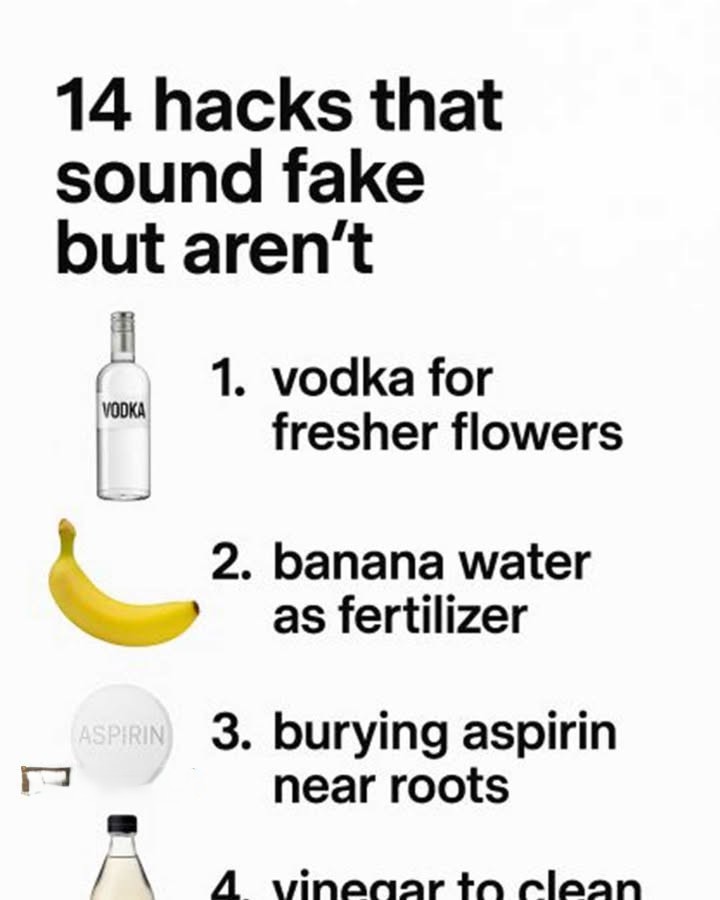In a world overflowing with life hacks, it can be challenging to sift through what actually works and what doesn’t. While some hacks might sound too good to be true, there are those that, although they seem fake, actually deliver impressive results. From household fixes to gardening tips, these hacks harness the power of everyday items to solve problems with minimal effort.
Whether you’re looking to extend the life of your flowers, fertilize your plants naturally, or simply find a new way to sharpen your scissors, these 14 hacks will surprise you with their effectiveness. Let’s dive into these unexpected yet practical tips that truly work.
1. Vodka for Fresher Flowers
Believe it or not, a splash of vodka can extend the life of your cut flowers. By adding just a few drops of vodka to the vase water, you can inhibit the growth of bacteria, which is a common cause of wilting. The alcohol acts as an antibacterial agent, keeping the water cleaner and your flowers looking fresh for longer. For best results, mix 1 teaspoon of vodka with 1 teaspoon of sugar in a quart of water and change the mixture every couple of days.
2. Banana Water as Fertilizer
Banana peels are rich in potassium and other nutrients that plants love. Instead of tossing them, soak the peels in water for a few days to create a nutrient-rich solution. Use approximately one banana peel per liter of water, and let it sit for at least 48 hours. Once ready, use the banana water to water your plants, providing them with a natural boost that supports flowering and root development.
3. Burying Aspirin Near Roots
Aspirin contains salicylic acid, a compound that can enhance plant growth and help them fight off diseases. By crushing an aspirin tablet and mixing it into the soil around the base of your plants, you can strengthen their immune systems. Do this once a month, using one tablet per plant, to see noticeable improvements in their health and resilience.
4. Vinegar to Clean Rust Off Tools
Vinegar is a powerful cleaning agent, especially when it comes to removing rust from metal tools. Soak rusty tools in a bowl of white vinegar for 24 hours, then scrub them with a brush to remove the rust. If the rust is particularly stubborn, you might need to repeat the process. Rinse the tools thoroughly and dry them to prevent future rusting.
5. Toothpaste to Remove Scratches from CDs
Toothpaste is slightly abrasive, which makes it perfect for polishing out superficial scratches on CDs. Apply a small amount of toothpaste (not gel) to a soft cloth and gently rub it onto the disc in a circular motion. Rinse the CD with water and dry it with a clean cloth. This method can help recover the playability of scratched discs.
6. Using a Rubber Band to Strip Screws
When you encounter a stripped screw that refuses to budge, a common household rubber band might be your solution. Place the rubber band over the screw head, and press your screwdriver firmly into the band before turning. The rubber band fills the gaps, providing extra grip and making it easier to remove the screw.
7. Coffee Grounds to Deodorize Your Fridge
Coffee grounds are excellent at absorbing odors, making them perfect for deodorizing your fridge. Place a bowl of used coffee grounds in the back of your refrigerator and let them work their magic. Replace the grounds every two weeks to maintain freshness. This is an eco-friendly alternative to commercial deodorizers.
Next Page

